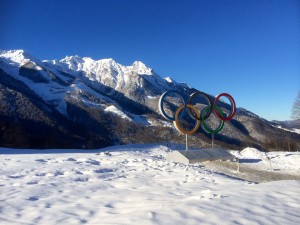By Caroline Heaney
Today sees the start of the Winter Paralympics which provides us with the opportunity to witness yet more extraordinary feats of athletic ability in Sochi. The London 2012 Summer Paralympics helped raise the profile of Paralympic sport like never before and hopefully the Sochi games will do the same, despite the danger of the event being overshadowed by recent events in Ukraine.
So what do the Winter Paralympics have in store for us, and who are Paralympics GBs medal prospects? The sports included in the Winter Paralympics programme are: Alpine skiing, Wheelchair Curling, Ice Sledge Hockey, Nordic Skiing and Biathlon. Great Britain have a squad of 15 athletes in Sochi and whilst Paralympics GB are a dominant force in the summer games, they have yet to win a gold medal at the Winter Paralympics. Paralympics GBs best performance to date came in the 1984 Winter Paralympics where they won 4 silver and 6 bronze medals. The medal target for Sochi is 2 to 6 medals.
Alpine Skiing
Alpine skiing comprises the downhill, super-G, giant slalom, slalom and super combined disciplines across three categories of disability that will see standing, sit-ski and visually impaired events. Snowboard cross will also be making its Paralympic debut.
British interest: Mike Brennan, Jade Etherington and guide Caroline Powell, Kelly Gallagher and guide Charlotte Evans, 15 year old Mille Knight (opening ceremony flag bearer) and guide Rachael Ferrier, Ben Sneesby, Anna Turney, and James Whitley. Kelly Gallagher represents one of Paralympic GBs strongest medal hopes.
Wheelchair Curling
Wheelchair curling is essentially the same game as we saw at the Winter Olympics with one key difference – there is no sweeping. Also, unlike the Olympic event, Paralympic curling is contested by mixed gender teams. Following a silver medal in 2006 and the medal winning achievements of their Olympic counterparts the Paralympic GB curling team are under pressure to gain a place on the podium and they are in a strong position to achieve this.
British interest: Skip Angie Malone, competing in her 3rd Paralympics, will be joined by Gregor Ewan, Jim Gault, Bob McPherson, and Aileen Neilson. Angie made history in 2010 by becoming the first female skip in international competition.
Ice Sledge Hockey
Ice sledge hockey, as its name suggests, is played on sledges. Otherwise it is similar to the Winter Olympics version of the game. Paralympics GB does not have a team in the event, but Canada and the USA are big medal contenders.
Nordic Skiing and Biathlon
Peter Young was the last British cross-country skiing medallist when he won a bronze in 1994. Sadly there are no British competitors in the cross-country skiing or biathlon events in Sochi, which will see sitting, standing and visually impaired races. This sport looks set to be a favourite of the home crowd with Russian athletes expected to dominate.
The Winter Paralympics will no doubt provide another amazing spectacle of sport and with many in the British team making their Paralympics debut and potential British medal prospects we could see some new sporting role models emerging from these games.
Bibliography
http://www.bbc.co.uk/sport/0/disability-sport/25580284
http://www.bbc.co.uk/sport/0/disability-sport/25605833
http://www.bbc.co.uk/sport/0/disability-sport/26422128
http://paralympics.channel4.com/competitions/sochi-2014-winter-paralympics/sports/index.html
http://paralympics.channel4.com/competitions/sochi-2014-winter-paralympics/athletes/index.html

